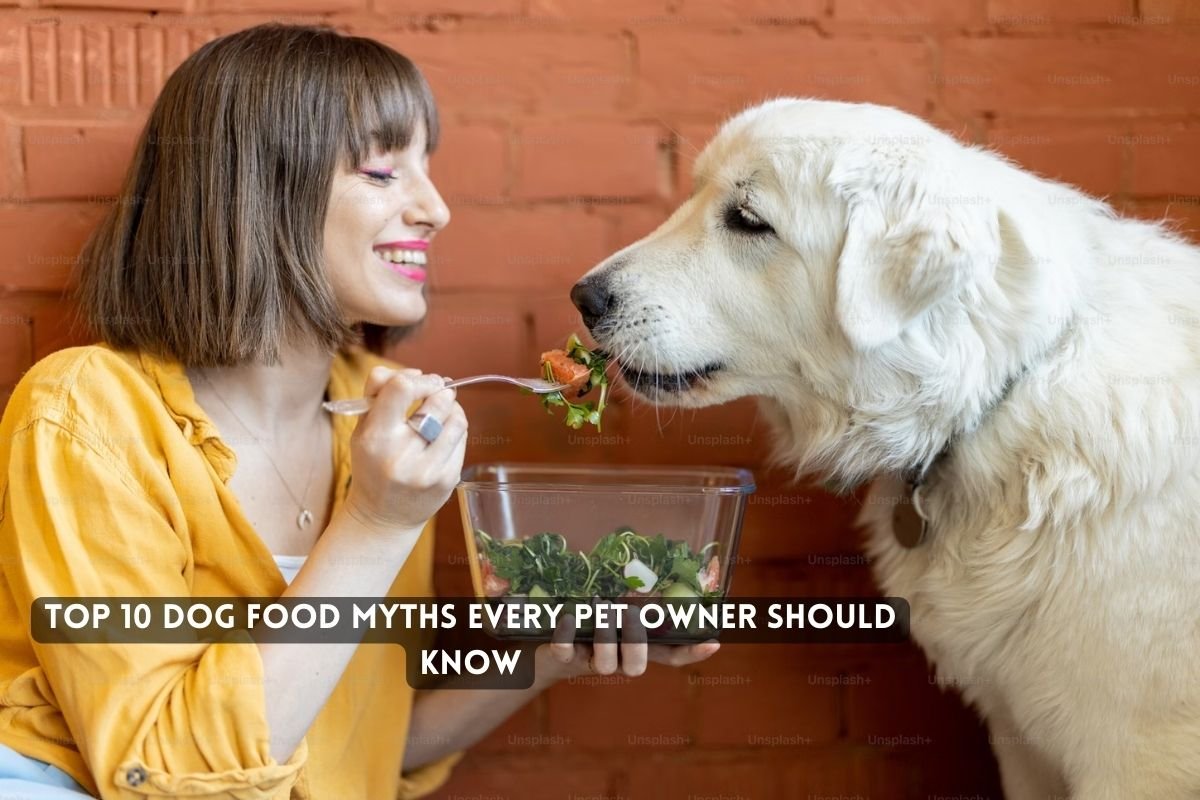Ensuring your dog’s health and well-being begins with proper nutrition. However, navigating the world of dog food can be tricky with so many myths and misconceptions circulating. Here are the top 10 dog food myths every pet owner should know to make informed choices for their furry friends.
Myth: Grain-Free Diets Are Always Better
While grain-free diets have become popular, they are not necessarily healthier for all dogs. Grains like rice and barley can be beneficial, providing essential nutrients. Some dogs with specific allergies may benefit from grain-free diets, but for most dogs, grains are not harmful.
Myth: Raw Food Diets Are the Best
Raw food diets can offer some benefits, but they also carry risks such as bacterial contamination and unbalanced nutrition. It’s essential to consult a veterinarian before switching to a raw food diet to ensure it’s safe and appropriate for your dog.
Myth: By-Products in Dog Food Are Bad
By-products often get a bad rap, but they can include nutritious organ meats that are beneficial for dogs. The key is the quality of the by-products. Not all by-products are created equal, so choosing reputable brands that use high-quality ingredients is crucial.
Myth: Dogs Should Eat Like Wolves
While dogs share ancestry with wolves, domesticated dogs have evolved and their dietary needs have changed. Dogs are omnivores, meaning they can digest a variety of foods, including fruits and vegetables, not just meat.
Myth: Expensive Dog Food Is Always Better
Price does not always equate to quality. Some expensive dog foods may contain unnecessary ingredients or fillers. It’s important to read labels and choose dog food based on its nutritional content rather than its price tag.
Myth: Table Scraps Are Safe for Dogs
Feeding your dog table scraps can lead to obesity and nutritional imbalances. Certain human foods, such as chocolate, onions, and grapes, are toxic to dogs. It’s best to stick to dog-specific treats and meals.
Myth: All Natural Dog Food Is Always Healthier
The term “natural” is not regulated and can be misleading. Just because a dog food claims to be natural doesn’t mean it’s nutritionally balanced or free from harmful additives. Always check the ingredient list and nutritional information.
Myth: Puppies and Adult Dogs Can Eat the Same Food
Puppies have different nutritional needs compared to adult dogs. Puppy food is specially formulated to support growth and development, while adult dog food meets the needs of a fully grown dog. Feeding the appropriate food for your dog’s life stage is essential.
Myth: Dry Food Is Better for Dental Health
While dry food can help reduce plaque buildup, it is not a substitute for regular dental care. Regular brushing and professional cleanings are crucial for maintaining your dog’s oral health.
Myth: Dogs Can’t Digest Carbohydrates
Dogs can digest and utilize carbohydrates efficiently. Carbohydrates provide energy and can be a part of a balanced diet. However, the focus should be on the overall nutritional balance rather than any single macronutrient.
Conclusion
Understanding the facts about dog food can help you make better nutritional choices for your pet. Always consult with your veterinarian to tailor your dog’s diet to their specific needs. Dispelling these common myths ensures your furry friend stays healthy, happy, and well-fed.
FAQs
How do I know if my dog has a food allergy?
Symptoms of food allergies include itching, digestive issues, and ear infections. If you suspect a food allergy, consult your vet for testing and advice on an elimination diet.
Is wet food better than dry food?
Both have their pros and cons. Wet food is more palatable and hydrating, while dry food is more convenient and can help with dental health. Choose based on your dog’s needs and preferences.
Are supplements necessary for my dog’s diet?
Not always. A balanced commercial dog food typically provides all the necessary nutrients. Supplements should only be given based on veterinary advice.
Can I switch my dog’s food abruptly?
No, it’s best to transition gradually over 7-10 days to avoid digestive upset. Mix the new food with the old, gradually increasing the amount of new food.
Is it okay to feed my dog homemade food?
Yes, but it’s important to ensure homemade diets are nutritionally balanced. Consulting with a veterinarian or a pet nutritionist is recommended.
